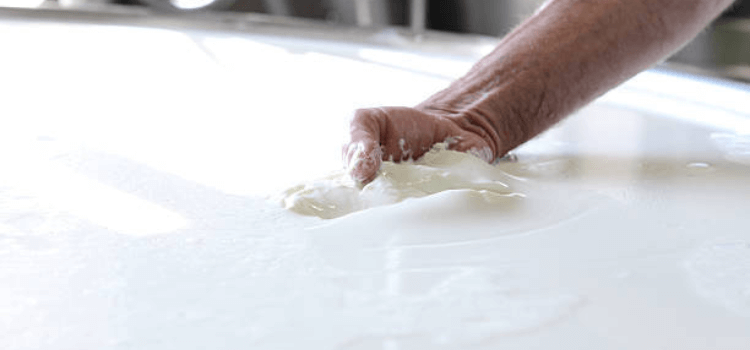As an Amazon Associate, I earn from qualifying purchases.
what is microbial rennet

For countless centuries, cheese has been a staple in the human diet, forming the backbone of numerous cultural cuisines. Yet, the traditional cheese-making process has posed a dilemma for many vegetarians, due to its reliance on animal-based rennet. In recent years, a paradigm shift has occurred, offering a viable solution to this ethical and dietary struggle – microbial rennet. In this comprehensive guide, we explore what microbial rennet is, how it benefits vegetarians, and how you can incorporate it into your cheese-making adventures.
Understanding Rennet
An essential component of cheesemaking is the rennet enzyme complex. It’s responsible for coagulating milk, separating it into curds and whey – a critical step in crafting the textures and flavors that define different varieties of cheese. Vegetarians should avoid rennet since it was traditionally made from the stomachs of newborn calves.
+But with the advent of microbial rennet, the door to vegetarian cheese-making has been flung wide open.
The Challenge for Vegetarians
Vegetarians who love cheese have long been challenged by the invisible barrier posed by rennet. Avoiding animal products while trying to savor the variety and nuanced taste of cheese seemed like a paradoxical undertaking. Enter microbial rennet, which offers a path to indulge in the world of cheese without compromising dietary choices.
What is Microbial Rennet?
Microbial rennet is an alternative to animal-derived rennet that vegetarians can use with a clear conscience. It is produced from a variety of fungi, yeasts, or bacteria, and it mimics the enzymatic action of traditional rennet, creating cheese with comparable textures and flavors.
Vegetarian and Halal-Friendly
One of the key advantages of microbial rennet is its suitability for both vegetarian and halal diets. This inclusivity has opened up new avenues for cheese consumption and production within these communities, bridging a gap that had existed for far too long.
Benefits of Microbial Rennet
The adoption of microbial rennet comes with a host of benefits for vegetarians and the environment. From health considerations to ethical concerns, here’s a deeper look at the advantages of choosing microbial rennet.
A Healthier Choice
Microbial rennet offers a healthier alternative, particularly for vegetarians who can now enjoy the nutritive benefits of cheese without the concerns of consuming animal by-products or their inherent health risks.
Environmental Sustainability
The production of microbial rennet is often more sustainable and eco-friendly than traditional rennet due to reduced reliance on animal agriculture. This transition aligns well with the ethos of many vegetarian practitioners.
Microbial Rennet in Cheese-Making
Given its rising popularity, it’s important to understand how microbial rennet fits into the cheese-making process. We’ll examine how it’s used and explore some popular cheese types that are crafted using microbial rennet.
The Process
The adoption of microbial rennet doesn’t require a radical overhaul of the traditional cheese-making process. It is seamlessly incorporated, guiding the milk to the same coagulation endpoint as its animal-based counterpart, resulting in delicious cheese varieties.
Cheeses Made with Microbial Rennet
From the stately Cheddar to the delicate Mascarpone, numerous cheeses are now made using microbial rennet. These cheeses stand as a testament to the versatility and potential of microbial rennet in creating flavors that captivate the palate.
Where to Find Microbial Rennet
For vegetarians eager to explore the world of homemade cheese, microbial rennet is readily available. It can be sourced from various retail outlets and online marketplaces, and with a little effort, you can even make your own at home.
Retail and Online Sources
Specialty stores and online suppliers offer a wide array of microbial rennet options, from liquid to powder form, providing flexibility and choice for your cheese-making needs.
Making Cheese at Home with Microbial Rennet
Home cheese-making kits often include microbial rennet, empowering enthusiasts to take the process into their own hands, ensuring quality and peace of mind in the ingredients used.
Experimentation is Key
Adopting microbial rennet is not just about committing to a dietary choice; it’s about exploring new culinary landscapes and supporting the food revolution that encourages inclusivity and sustainability.
For vegetarians, it’s a chance to enjoy cheese in its myriad forms, free from the ambiguity of rennet sources. For the cheese industry, it’s a venture into innovation and adaptation, creating new markets and fan bases. And for food lovers in general, it’s an exciting new chapter in the ongoing narrative of human gastronomy – one that is characterized by diversity, conscious consumption, and flavor without borders.
As an Amazon Associate, I earn from qualifying purchases.